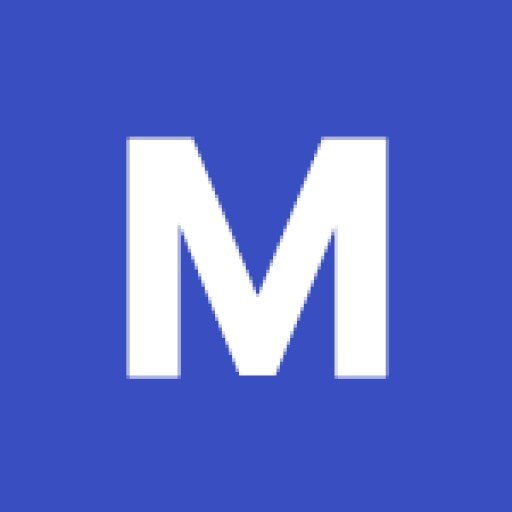Detailed Plan
We want to push the development of one easy-to-use framework for the most-intuitive low poly 3D-level editor on top of the Godot engine, the most advanced open source game engine out there. We think that distributed content creation for blockchain-applications is a huge use case for metadata and NFT's.
We take existing solutions and make them accessible for the broader developer community. HungryProton is the developer of Godot's infamous ProtonGraph and Scatter extensions, which are non-destructive procedural modeling tools. We will leverage this already existing technology and turn it into a framework for a fully-fledged 3D-level editor that utilizes blockchain metadata. This enables users to create their own content, levels and assets like characters.
This proposal is deeply connected to another proposal, which strives to become a game-based play-to-learn-and-earn platform. Check it out here:
<https://cardano.ideascale.com/a/dtd/Play-to-learn-and-earn-DID-Platform/367037-48088>
We create a standard to serialize and replicate the state of 3D-models and levels for video games and applications in blockchain metadata.
The Godot engine is written in C++ and mostly uses GDScript, its own language made specifically for developing games. We want to use their GDNative API to extend the engine and build an intuitive level editor with Plutus functionalities. For this, we might need to update the Haskell bindings. We would like to use Haskell and Plutus wherever feasible.
We make use of procedural modeling for abstracting the construction logic of models and functionalities. Constructing a level is done by using different procedural brushes, e.g. one brush has the logic for the construction of a house stored inside it – roof is on the top, floor on the ground, walls on four+ connected sides, door on ground-level and some windows dependent on the number of stories. You can immediately start building your house, clicking and painting your vision, while the algorithm does most of the work in the background. To have sufficient variability, every brush has different seeds for different configurations of your wanted creation.
Inspired by projects like Dreams and Minecraft, we want the editor to be game-based as well – it is of paramount importance for the editor's interface to streamline decision and creation processes. This is achieved by using blueprints and answering simple questionnaires, upon which the editor finds the most suitable blueprint to edit for your needs.
Game developers need to be able to customize the framework to suit their own game design. Important adaptable parts are the HUD, brushes for creation of standard content and additional functionalities.
We want to either create or integrate with an existing asset marketplace, connecting fellow developers. It would be great to connect smart contracts and NFTs to store 3D-models and regulate optional monetization.
The editor needs to have these core functionalities:
- character design + rigging
- animation
- terrain shaping
- asset placement/access to asset marketplace
- text placement/voice recording/sounds/video
- interaction handling
The editor needs brushes for all kinds of commonly used models and assets. These are houses, structures, trees, caves, streets, plantation in general, characters, clouds, water, clothing, etc.
Market: The global gaming market had a value of around 167 billion dollars in 2020. Games like Roblox or Fortnite, that also offer user-generated content and an own in-game economy/currency, report several hundred million monthly active users.
Creating tools for game devs expands Cardano's utility as one of the best choices for upcoming blockchain games. Godot engine has a big and open community of developers and game lovers. In creating the framework, we open up Godot developers to build on top of Cardano.
Show us the money:
Mike Dietrich is the founder of the platform and Educhainment, responsible for integrating the editor framework with Plutus components. He is a first-cohort Plutus Pioneer, cultural scientist, teacher, musician, lifelong gamer and a big proponent of game-based learning.
www.educhainment.com (still in progress)
Gilles Rivière, better known as HungryProton, is a software engineer and full stack developer, mostly responsible for the core development of framework and procedural 3D-tech components and integration with the platform. His previous public work for the Godot developer community include tools like Scatter and ProtonGraph, that extend the Godot engine's design abilities and enable non-destructive, procedural 3D modeling. He dedicates most of his free time to develop his own games, inspired by favorite titles like the Zelda and Nier series.
<https://github.com/HungryProton>
Julian Bauch is our UX designer and front end developer, building innovative interfaces and solving interaction problems. He holds degrees in Computer Science and Design with work experience in software development, front end design and generative art projects. Time and again, he gets inspired by possibilities and loves to ask questions and innovate.
<https://iuilan.art/>
We are in the process of hiring the rest of the core team. As such, we are actively on the lookout for a…
- experienced game dev/3D-modeler
- blockchain dev
Please feel free to contact us!
5 members * $25*80h * 6 months = $60000
Shout out to devs for collaboration
If you are a game/blockchain-developer, own a game-studio or think that you can contribute to our project in whatever way, please contact us! Every feedback is welcome! We strive to become a welcoming and diverse community of developers for education/blockchain/entertainment technologies.
We are willing to merge with other teams wanting to address similar problems.
Roadmap:
One month: Hire the rest of the core team. Create a metadata standard to serialize levels to a low payload.
Three months: Rough MVP, which includes being able to place items in an empty editor and replicate its state through reading transaction metadata.
Six months: Advanced procedural modeling capabilities. Connect the test versions of the editor framework and the learning-platform.
IP:
We love open-source, thus we will make every part of the platform and every line of code MIT-licensed and therefore accessible to the community, bringing the most value to the ecosystem. We want to create resources to achieve great things together.
What does success look like?
Future game-devs in the Cardano ecosystem have a blockchain-integrated, working level editor to found a new generation of distributed, community-based sandbox-games. This will make Cardano an even more attractive choice for game devs, which are setting new standards for collaborative playing and building, adding new use-cases for DLT, NFTs and transaction metadata. The framework was used to enable community members to build content for an innovative game-based learning platform.



